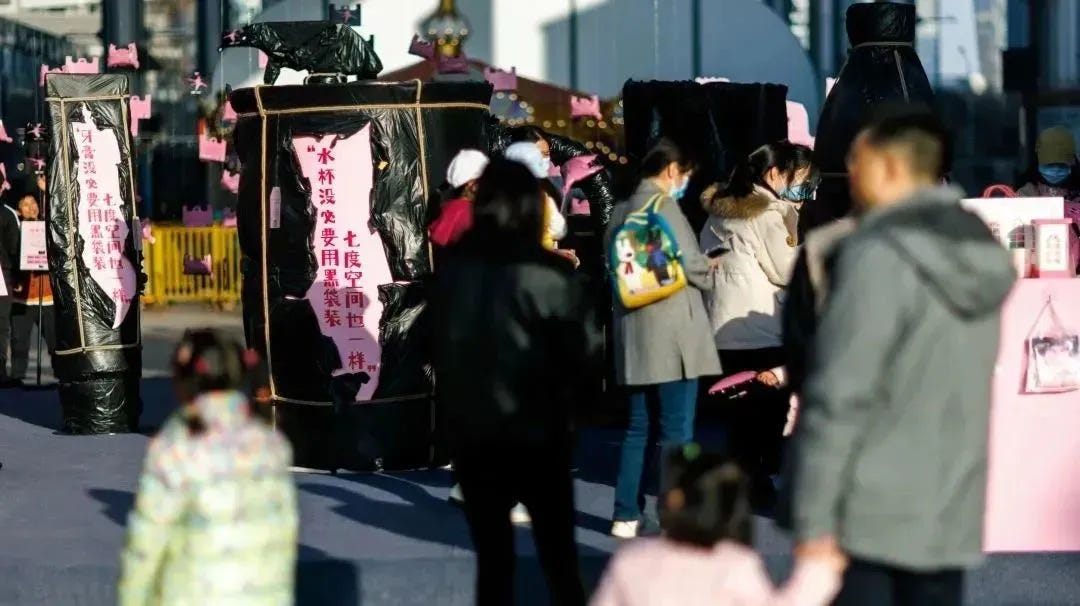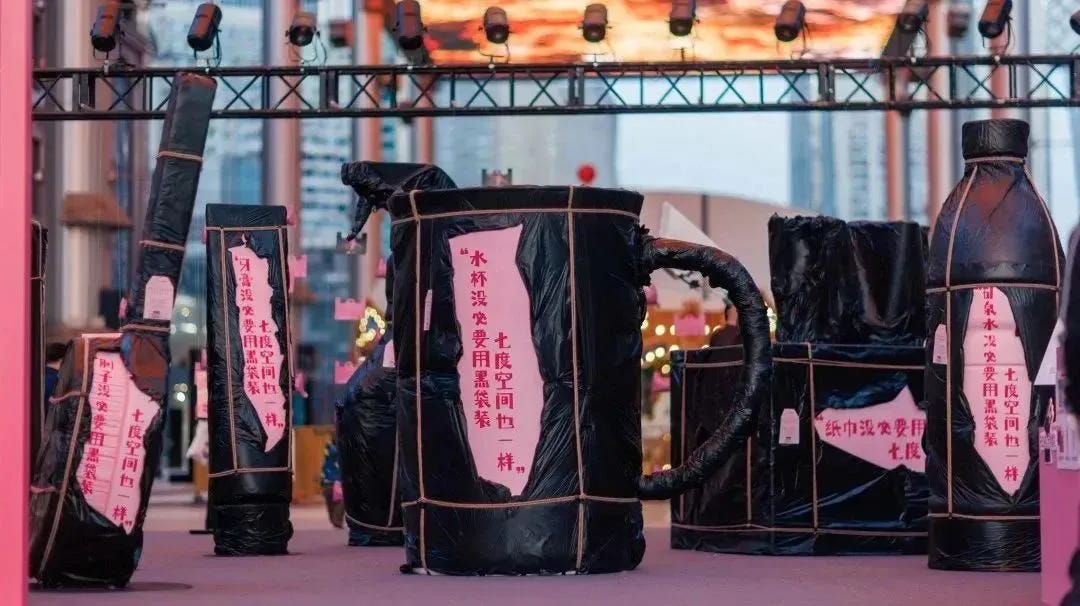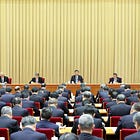During this year’s biggest e-commerce sales event (Double 11 Festival) in China, the domestic menstrual pad scandal became the most talked-about issue among Chinese consumers. The incident was both surprising and shocking. While quality issues with menstrual pads are not new, this scandal stands out due to its massive scale. Almost all the top brands were reported to have problems, with many pads on the market being shorter than the dimensions listed on the packaging. A few well-known brands were even found to have serious quality concerns, including unhealthy pH levels in the pad material, insect eggs inside the pads, and chemicals such as fluorescent agents and formaldehyde exceeding safe limits.
The menstrual pad scandal
In early November, several influencers on social media began posting videos questioning, "Why are menstrual pads never long enough to meet the marketed dimensions?" They measured the length and thickness of various pad products and found that almost all the well-known brands had products shorter than the dimensions claimed by manufacturers.
These videos quickly went viral, resonating strongly with Chinese female consumers. A wave of followers began posting similar videos, testing multiple well-known domestic and imported pad brands. The results revealed that nearly all the brands, including prominent names like ABC, Sofy, Whisper, and Space 7, were producing pads that measured shorter than the sizes listed on the packaging.
According to The Paper's evaluation, out of 24 commonly available menstrual pad products on the market, only 2 matched the dimensions listed on the packaging, and only 1 exceeded the advertised length by 8 millimeters. The rest were 10 to 20 millimeters shorter. This measurement only accounted for the total length, while the effective absorbent area was an additional 10 to 20 millimeters shorter. [source]
Lin Ximeng, a college graduate currently conducting market research on menstrual pads and planning to start her own pad brand, told The Paper that after investigating five different factories, the errors in the pads are usually not noticeable when measured by hand using today's standard manufacturing process. She noted that a 4-millimeter discrepancy is already considered significant enough. [source]
China's national standards allow for an error range of ±4%, but consumers found that almost all the brands they tested followed the "lower bound," leading many to believe that the manufacturers were deliberately cutting corners.
As a result, the topic of "menstrual pad length fraud" quickly went viral among angry Chinese women. In November, discussions related to menstrual pads on Xiaohongshu and Douyin, China’s main social media platforms, surged by 2.3 times compared to the previous month. In addition to the length fraud, consumers raised other serious concerns.
Many consumers shared their experiences with domestic brands, claiming that the pad material caused itching. After switching to Japanese or Korean brands, the symptoms reportedly improved. The scandal also led to many consumers flying to Japan and Korea to shop for pads.
China’s standards require the pH of menstrual pads to fall between 4.0 and 9.0, which is the same range as Category C textiles (those not in direct contact with skin). Many consumers have called for an update to this standard, arguing that the current range is too broad for products that come into direct contact with the skin.
On November 28, the China Consumer Association issued a report stating that the shrinking of menstrual pad lengths was one of the most significant consumer rights violations during the 2023 Double 11 shopping festival.
The long battle from "period poverty" to "period shame"
Menstrual pads have a relatively short history in China, but Chinese women have been fighting against period-related challenges ever since the first pad became available in the country.
China didn’t establish its first menstrual pad production line until 1982. In 1985, the first domestic brand, "安乐" (Anle), was launched, which later became the well-known brand Space 7 (七度空间). This marked the point when commercial menstrual pads became available to Chinese women—almost half a century later than in the U.S. and Europe.
However, back then, the price of pads was unaffordable for many families.
In 1982, with the successful implementation of China’s reform and opening-up policies, the country began introducing its first sanitary pad production lines. However, at that time, people's wages were incredibly low. An average worker earned only about thirty yuan a month, which had to cover the entire household expenses.
Meanwhile, a package of sanitary pads cost 7 mao (0.7 yuan), which was unaffordable for most families.
Additionally, sex education was not widespread in China at the time, and menstruation was considered a shameful and taboo subject for most people. [source]
Decades later, commercial pads have become a common staple for Chinese women. However, in 2020, a viral image on Chinese social media exposed a shocking reality. A netizen kindly suggested in the comment section of a "三无产品" (three-no product: no quality guarantee, no production license, and no expiration date) menstrual pad to switch to an alternative from a well-known brand for better hygiene and safety. To the surprise of many, other buyers commented with phrases like "my life is difficult," implying that they could only afford a product with no such quality assurance.
This incident brought the issue of "period poverty" to the forefront for many Chinese people, especially those in more affluent urban areas, who were shocked to learn that, in 2020's China, there were still people unable to afford a simple package of sanitary pads.

Despite being a basic necessity, the current tax rate for sanitary pads in China is 13%, the highest standard VAT rate. For comparison, the VAT rate on drinking water and food is just 9%. Additionally, the menstrual pad industry enjoys high profit margins, with many leading companies’ gross margins exceeding 50%.
The high price point and generous profit margins have not been matched by quality. Nor have they led to proper advertising standards from pad companies. In 2024, Chinese netizens discovered that some companies were still using inappropriate and vulgar advertising tactics—such as hiring male actors to perform dramatic, attention-grabbing stunts in short videos to attract online traffic.

Apart from that, the stigma surrounding menstruation has long been pervasive in today’s China. Due to outdated mentality, many still believe that a woman’s period is a private matter, something not to be discussed publicly—including many Chinese women themselves. For example, when purchasing a pad in a store, many believe it should be placed in an opaque black bag, not a transparent one. Asking for a pad, or even taking one out to go to the restroom in public places like schools or workplaces, is often considered inappropriate and something that must be done in secret.
Among many, many times Chinese women feel forced to discreetly get sanitary products, one incident finally brought the discussion to the surface. In 2022, during the COVID-19 pandemic, a controversy erupted around an article written by Wu Kejing, Vice Chairman of the Shaanxi Writers Association. In the article, he criticized a woman in Xi’an who demanded sanitary pads while under quarantine, calling her behavior "petty" and "princess-like." His comments sparked widespread backlash.
In recent years, more and more people have started openly discussing the issue of "period shame" on social media, advocating for the removal of the stigma around women's biological needs. Following numerous complaints, sanitary pads were added to the list of available items for sale on high-speed trains, and more public facilities and institutions—such as shopping malls and schools—are beginning to offer free pads to women in need.
During 2023's international woman's festival, Space 7 launched an installation called the "black bag's space" in the city center of Beijing.
Many passersby were drawn to the "black bag's space," stopping to take pictures and pose for photos. The most eye-catching features in this space were the giant sculptures shaped like everyday items: brushes, toothpaste, shampoo, and other common products. Without exception, they were all absurdly covered by black plastic bags. Signs next to the sculptures reminded passersby: "You would never intentionally cover a bottle of mineral water with a black bag. But what about that package of sanitary pads?"

How did consumers react?
The bargain between consumers and industry giants is never a fair one.
According to data from BigOne Lab, Baiguan's parent company, despite the massive controversy in November, negative sentiment subsided quickly. Sales data from our offline panel of convenience stores and supermarkets shows that the pad sector only saw a 5% year-on-year decline in November, with month-on-month sales remaining largely unchanged. This incident had minimal impact on offline sales.
Looking at the performance of individual brands, Freepoint saw a 19% year-on-year growth, though its sales dropped by three percentage points compared to the previous month. Brands like Space 7, Sofy, Always, and Whisper continued to show a downward trend, with year-on-year declines of -9%, -9%, -10%, and -9%, respectively. Month-on-month, they had little change, except for Whisper, which saw a slight uptick of 3%.
Without truly fostering sufficient competition and strong regulatory standards, ordinary consumers will continue to be the victims once the buzz dies down.
While some may argue that a few millimeters short of size shouldn't warrant such a large-scale backlash, I believe that behind this scandal we saw a rising group of discerning female consumers with a sense of social responsibility are standing up to demand their deserved rights.
While some may commenting such a few mini meters short of size should not deserve such as big scale of the criticism, and believe behind that it shows a rising group of discerning female consumers wiht social responsibility to argue for what's their deserved rights.
The "pink tax" and period stigma have long been issues not just in China, but globally. Behind this biggest-ever sanitary pad scandal in China, I don’t just see Chinese women being disappointed over and over again. I see more women and men stepping up to challenge the status quo.
For the vast majority of Chinese women, in just 40 short years, we’ve gone from a time when there were no sanitary pads available, to a time when we couldn’t afford them, to finally being able to afford them. That’s one step—and there will be many more to come.
Behind the vocal advocacy of Chinese women, which has become more prominent in recent years, lies the rising power of women and the growing economic and social status of Chinese females.
After 2016, the proportion of high-income women and female executives began to rise rapidly.
According to data from various recruitment websites such as Zhilian Recruitment, Boss Zhipin, and Liepin, in the past five years, the annual income growth rate for women in China has reached 4%-7%, which is higher than the average growth rate of 1.7%-6% for men during the same period.
As a result, the income gap between men and women in China, which was previously around 30%, has quickly narrowed to about 15%-25%.
Since the invention of the menstrual pad, the ongoing fight between traditional stigma and natural needs has been a persistent issue, and China is catching up in this race.
"Quantitative changes lead to qualitative changes." With more people speaking out and demanding their rightful needs, I hope it won't take another 40 years for China to see a highly regulated industry with no stigma surrounding women’s natural needs.







